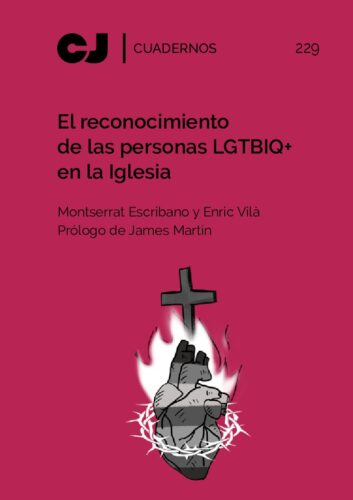It’s been a rough few weeks for a lot of hurting and vulnerable people in the United States and around the world. President Donald Trump’s administration has unleashed a whirlwind of executive orders directed against transgender people, people of color, immigrants, refugees, women, people with disabilities, victims of war and the poor. The news is bleak, and the world feels dark.
To be honest, I’ve struggled with hopelessness. I’m still tired from the first Trump administration, and we’re just starting another four years. How can we go on? I’ve noticed that many of my closest friends, family, and community feel the same. But I’ve also noticed small changes in the way we relate to each other that give me hope.
It began in my home. I’ve needed a lot of extra love recently, and my husband has been there to provide it. After a day of bad news, I ask to be held, and he rocks me to sleep. This wasn’t the way it was before, when I was quite content to go to bed on my own. The stakes seem higher now, and he’s become an ever-widening channel of grace and peace.
I’ve found myself more loving to him, too. He’s in school right now, often tired, and sometimes irritable. With the world turned upside down, I’ve tried to make our home a refuge—to prepare warm suppers more often, to do the laundry when it needs to be done, to listen attentively as he goes over his day. We’ve decided not to look at our phones when we’re spending time together in the mornings. Our home has become a retreat where attention and care abound.
I’ve noticed small changes in the way we relate to each other that give me hope.
I’ve noticed subtle changes in my work relationships as well. When a student fails to submit an assignment on time, I’m slower to jump to judgment. Maybe they’re struggling with intense anxiety. Maybe their immigrant parent lacks legal papers and they’re rushing to secure some kind of status. Instead of tsk-tsking, I ask how they’re holding up. When interpreting the actions of others, I’m trying to lean into a hermeneutic of generosity and concern.
The communities I belong to—university, parish, neighborhood, queer—are renewing their commitments to affirmation and compassion. I’ve seen people who have never knowingly spoken with a trans person suddenly recognize the need for gender-inclusive bathrooms. Communities that took immigrant and refugee members for granted are now doing everything in their power to ensure their safety. Everyone seems to be thinking about new ways they can help protect the most vulnerable among us. The struggle may just be beginning, but there’s an electric energy among those eager to do the right thing.
When I’m out and about, I’ve become more attentive to small acts of kindness—like someone waiting to hold the door of a building open for me or a disabled friend in a nursing home who gives $5 for homeless ministry. These ordinary, seemingly simple sacrifices build faith that a better world is coming into being. They are small signs that the Kingdom of God is at our door even when the evil empire seems to have the upper hand. My soul is eager to embrace and cherish the everyday tokens of love that nourish our shared humanity and point to God’s work among us.
I’ve become more attentive to small acts of kindness—like someone waiting to hold the door of a building open for me.
In recent years it’s become fashionable in some Christian circles to condemn empathy and embrace forms of religion that privilege the strong and mighty. Nothing could be further from Truth.
Christians serve a God whose heart broke for the enslaved, who instituted years of Jubilee to forgive debt and called God’s people to welcome the stranger and care for the orphan and widow. Christians believe in a Christ—God made man—who wept over Jerusalem, whose heart was moved for the sick and sinful and outcast and poor, leading him to identify with and bring healing to the sick and sinful and outcast and poor. It was that Christ who died as a criminal, not to suffer for suffering’s sake, but to upend every form of empire, oppression and dehumanization.
The God of Jesus Christ calls those who claim to be his disciples to do the same. Life in Christ means that we do not conform to the habits and expectations set by the rulers, authorities, and cosmic powers of this present darkness. (Ephesians 6:12) Rather, as St. Paul reminds us, the fruits of the Spirit are “love, joy, peace, patience, kindness, generosity, faithfulness, gentleness, and self-control.” No matter the state of the world, “There is no law against such things.” (Galatians 5:22-23)
A close friend has encouraged me to pause and contemplate moments of beauty, goodness and compassion.
Focusing on the Fruits of the Spirit can have a dramatic impact on our spiritual lives.
In recent years, when I’ve struggled with despair, a close friend has encouraged me to pause and contemplate moments of beauty, goodness and compassion. It is to follow the advice of St. Paul, who told believers, “Whatever is true, whatever is honorable, whatever is just, whatever is pure, whatever is pleasing, whatever is commendable, if there is any excellence and if there is anything worthy of praise, think about these things.”
When I’ve taken my friend’s and St. Paul’s advice seriously, I begin to internalize feelings of safety and light. Meditating on the good can be a powerful antidote to feelings of anxiety and discouragement, brightening my outlook on life and restoring my hope in God.
There’s no doubt that the next few years will be challenging for many. But I am clinging to my Christian calling to be decent and to look for decency in my relationships with others. Together, even in the darkest of times, we’ll chart a way forward. Already, there are signs that God is doing a new work, and Christ invites each of us to share in his ministry of reconciliation—to be loved and love others just as God’s love sustains us all.




